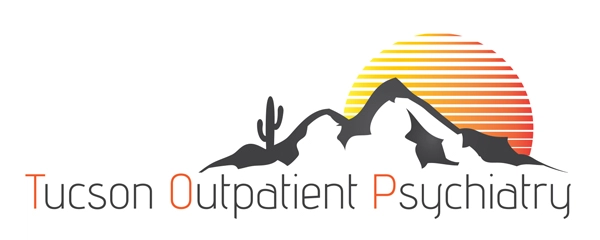
Understanding EMDR Therapy
Eye Movement Desensitization and Reprocessing (EMDR) is a proven therapeutic approach used to treat trauma, anxiety, and other emotional challenges. It helps individuals reprocess distressing memories using bilateral stimulation, such as guided eye movements, tapping, or audio cues. This process can lead to a significant reduction in emotional distress and promote long-term healing.
At Tucson Outpatient Psychiatry, our EMDR-trained therapists offer compassionate, individualized care tailored to your healing journey. Whether you’re exploring EMDR therapy in Tucson or accessing services virtually across Arizona, we’re here to support your first steps.
Preparing for Your First EMDR Session
If you’re feeling nervous about your first EMDR session, you’re not alone. Many clients come to their initial appointment unsure of what to expect, especially if they’ve never participated in trauma-focused therapy before.
In your first EMDR session, your therapist won’t immediately begin reprocessing traumatic memories. Instead, the focus is on getting to know you, understanding your history, and building a sense of safety and trust. You’ll discuss:
-
Your personal goals for therapy
-
Traumatic or distressing experiences you want to address
-
Current symptoms, such as anxiety, sleep disturbances, or flashbacks
-
Past experiences with therapy or mental health treatment
This foundational session is essential for developing a personalized treatment plan and ensuring that EMDR is the right fit for your needs.
Building Safety and Stabilization Skills
Before beginning reprocessing, your EMDR therapist will guide you through preparation and stabilization. This phase is designed to help you feel emotionally grounded and equipped to manage distress during and after sessions. You’ll learn and practice tools such as:
-
Deep breathing or grounding exercises
-
Visualization of a “safe place”
-
Techniques for emotional regulation
-
Identifying and rating levels of distress
This phase can span several sessions, depending on your comfort level and past trauma history. The goal is to ensure you feel empowered and supported throughout the EMDR process.
What Happens in EMDR Therapy?
When you’re ready, the reprocessing phase of EMDR begins. Here’s what typically happens:
-
Targeting a memory – You’ll identify a specific memory or issue to focus on.
-
Rating distress – You’ll rate the emotional discomfort associated with the memory.
-
Bilateral stimulation – Your therapist will use eye movements, sounds, or taps to activate both sides of your brain while you focus on the memory.
-
Processing – You’ll notice any thoughts, feelings, or body sensations that arise and share them with your therapist.
-
Resolution – As the session continues, your distress will likely begin to decrease and be replaced with more adaptive, calming responses.
Sessions move at your pace, and it’s normal to feel a mix of emotions during this process. Your therapist will ensure that you always feel in control and that sessions end with grounding techniques to bring you back to the present moment.
After Your First EMDR Session
It’s common to feel tired or emotionally sensitive after your first EMDR session. You may notice:
-
Vivid dreams or memories surfacing
-
Shifts in your mood or physical sensations
-
New insights about your experiences
These are normal signs that your brain is actively processing. Your therapist will check in during the next session and adjust your treatment plan as needed. It’s important to take care of yourself between sessions—get rest, stay hydrated, and practice the grounding tools you learned.
Is EMDR Therapy Right for You?
EMDR therapy can be helpful for individuals dealing with:
-
Post-traumatic stress disorder (PTSD)
-
Anxiety and panic attacks
-
Depression related to unresolved trauma
-
Negative self-beliefs stemming from past experiences
At Tucson Outpatient Psychiatry, we understand that healing from trauma is deeply personal. Our EMDR-trained therapists are here to walk with you every step of the way, whether in person in Tucson or virtually throughout Arizona.
If EMDR isn’t the right fit, we also offer trauma-informed therapy and other modalities to support your mental wellness. You can learn more about our approach and treatment options on our EMDR therapy page.
Take the First Step Toward Healing
Starting therapy can feel overwhelming—but you don’t have to do it alone. At Tucson Outpatient Psychiatry, we provide a safe and compassionate space to begin your healing journey. Whether you’re in Tucson or seeking EMDR therapy in Arizona virtually, we’re here to help you understand your trauma, regain control, and reclaim peace.
Schedule your first EMDR session today and discover how this transformative therapy can support your mental wellness.



